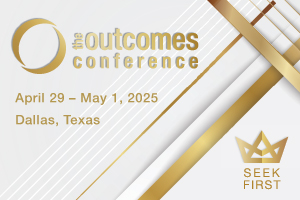
Transforming Wounds into Wisdom By David Sanford
Christian Leaders: Transforming Wounds into Wisdom
Jolyn Davidson is a licensed psychotherapist in practice for over thirty years. Davidson has been a consultant for and trainer of leaders of non-profit ministries and for-profit organizations here and abroad. She is a consultant to practitioners of a variety of disciplines, contributing author to several psychotherapy books, and author of the acclaimed book, Transforming Wounds into Wisdom. In this Q&A, Davidson discusses some of her book’s applications to Christian leaders.
Do you hope Christian leaders will recommend your book to others?
Yes, but first read it for you. Here’s why: You will find answers to the questions you may have about why you feel, think, and act in certain ways.
You start by addressing past wounds. There is a saying, “Time heals all wounds,” right?
Time does not heal emotional wounds. Time also does not change what you think and believe, nor does it enable you to change how you act. Time also does not rewrite the lines of your life story that you have already written.
Instead, attitudes hold your past, present, and future in their arms. They determine how you remember and attribute meaning to past experiences. Attitudes also affect how you feel, think, and act in the present. Finally, they create the frame on which you build your future life and ministry.
Is it really possible to change my ingrained attitudes?
Thankfully, the brain’s ability to change nerve pathways and connections makes it possible for you to change any attitudes that aren’t serving you well. That requires time and work. Through this process, you can create new emotional, cognitive, and behavioral patterns that can transform your life and ministry.
What if a Christian leader doesn’t like change?
Outdated attitudes typically have negative effects on the meanings you make of your experiences and what you have come to believe about yourself, others, and ministry.
What’s more, many Christian leaders automatically attach negative meanings to emotions and connections with others. They have difficulty trusting. They are uncomfortable with intimacy, vulnerability, and dependence. But what happens as a result? Eventually, you realize you feel disconnected from others. Worse? You feel all alone. Even worse? You can become emotionally disconnected from others . . . and even from God.
Take all that two steps further. An endless search for someone to provide for your unmet emotional needs—combined with the belief you are helpless and yet entitled to have someone meet your needs—is a recipe for serious problems.
What else do you see in Christian leaders?
Many Christian leaders seek internal security and confidence either by controlling or competing with others, both of which are misguided. Either scenario provides only the illusion that you are important and powerful. You can win every power struggle and every competition. You can outsmart everyone you know. Still, you are not likely to feel emotionally secure.
What about loss? Christian leaders seem to go through a lot of that.
Because your attitudes are the core filters through which you process all of your experiences, they affect your emotional responses to loss, your beliefs about loss, and the ways you act when you experience a loss.
As an outcome of a healthy mourning process, acceptance involves knowing and coming to terms with what is real and true about the nature of your loss. It allows the fact—and impact—of your loss to be true without trying to deny it, pretend it is something else, or make it be something it is not.
Acceptance involves letting go of efforts to create a different outcome and making peace with the reality there is nothing you can do now to change what happened to you in the past.
After a loss, some people may try to help you move on with your life by saying, “Forget about the past,” or “Never look back.” However, remembering, or looking back, is not what causes problems in your life.
What you do with your memories of your past determines whether you are stuck in unhelpful attitudes and relationship patterns—or whether you move forward in healthy ways.
One of the biggest clergy killers is way too much stress. Why is that?
Emotional overload, regardless of its cause, interferes with effective emotional, cognitive, and behavioral functioning. It can traumatize the mind and body. When this occurs, you can develop a sensitivity to the bodily sensations associated with emotions, which narrows your window of tolerance.
Traumatic experiences negatively affect how you think and what you believe. These cognitive changes can occur when a singular major occurrence (e.g., a natural disaster, an accident, or the death of a close family member) overwhelms you emotionally. They also can also occur with minor distressing incidents (e.g., being criticized, being over-controlled, or being alone while traveling).
You talk a lot about changing the way we think.
All of us need two key thinking processes and capacities in order to update the cognitive components of our attitudes. Those two are (1) developing your ability to reflect and (2) managing your thoughts and beliefs. These abilities are critical to enhancing your life and relationships.
Many thoughts enter your mind every day. Some of your thoughts develop from perceptions that are reality-based, and these can be quite helpful. Other thoughts and beliefs emerge from your imagination, mental associations, re-enactments, or internalized beliefs.
These ways of thinking may or may not be congruent with external reality, even though they may feel very real. That’s because your internal attitude system can distort your perceptions of what is occurring externally.
Because of these potential discrepancies, it is important to be aware of your thought processes and to develop the ability to think about, and question, your observations, perceptions, and conclusions.
It is essential to try to stay as reality-based as possible.
Can’t we just decide to change our behaviors?
If you focus only on changing your behaviors, you are likely to find yourself falling back into familiar attitude scripts. Simply trying to act different will not achieve long-term changes in your attitudes.
Changing your behavior depends on how you deal with the intricate interplay between the emotional, cognitive, and behavioral components of your attitudes.
This all takes some time, right?
Change is a learning process. It takes time, thoughtful effort, and courage to reroute the current neurological pathways and create new ones. The change process also requires a great deal of energy, as you learn to manage yourself and respond more effectively to others—others used to your current behaviors. Learning something new is always a challenge.
Nevertheless, what is easier in the short-term is not really easier from a broader perspective. Sitting and watching TV is easier than engaging in physical activity. In the end, however, you lose the energy, strength, flexibility, vitality, and health that come with being active.
What’s the reward?
As you transform your own wounds into wisdom, you can use the lessons you learn to enhance your life and the lives of others in and through your ministry. The wisdom gained from the transformational process will make it possible for people to relate to themselves, others, life, and ultimately, God in healthier ways.
Transforming Wounds into Wisdom is a journey—a heroic journey—that requires you to leave the only home you have ever known in order to create a new one.
Leaving old, familiar ways of being evokes uncertainty because you have not yet experienced the rewards of living differently. Remember, however, that like all heroes, you are taking action for a worthy cause.
That worthy cause is the goal of creating healthier attitudes and relational scripts. In turn, these will enable you to reach your potential and realize your God-given ministry dreams.
####
David Sanford coaches Christian leaders and other Christian leaders passionate about demonstrating the relevance of Jesus Christ in every major sphere of life. His book and Bible projects have been published by Zondervan, Tyndale, Thomas Nelson, Doubleday, and Amazon. His speaking engagements have ranged everywhere from UC Berkeley (CA) to The Billy Graham Center at the Cove (NC).

Register NOW because the prices goes up November 1, 2019!
www.OutcomesConference.org





